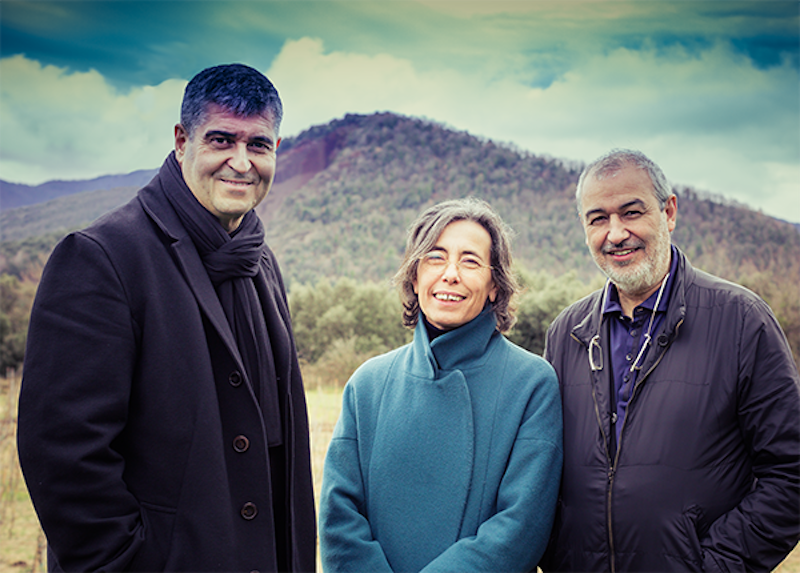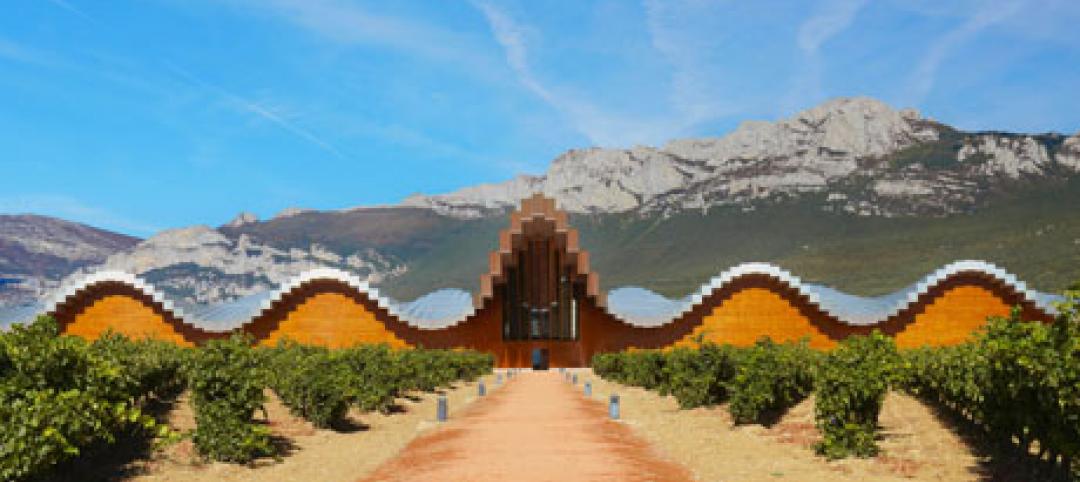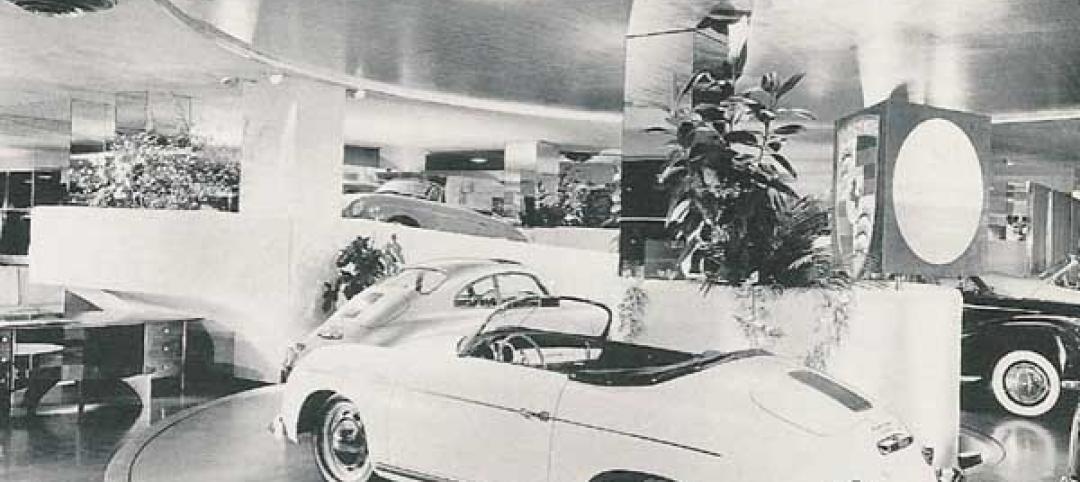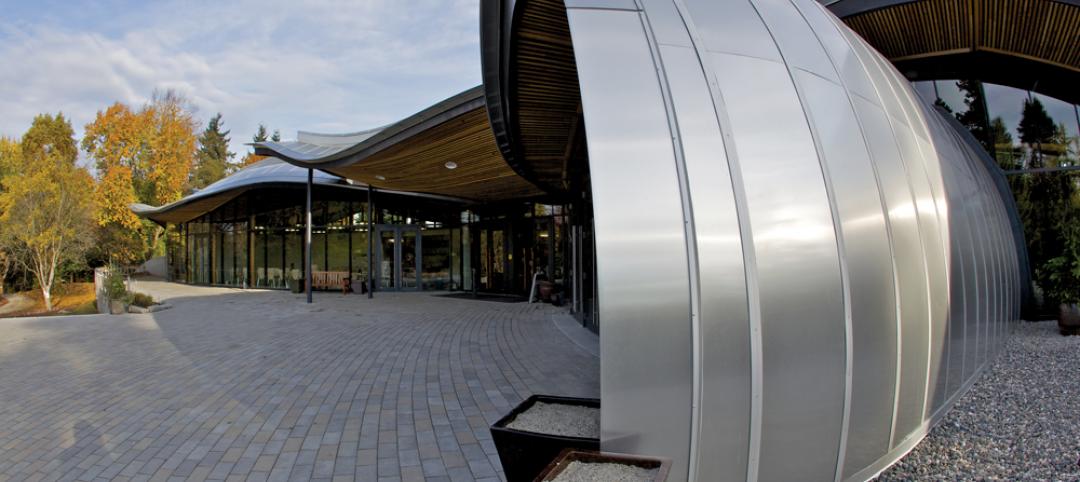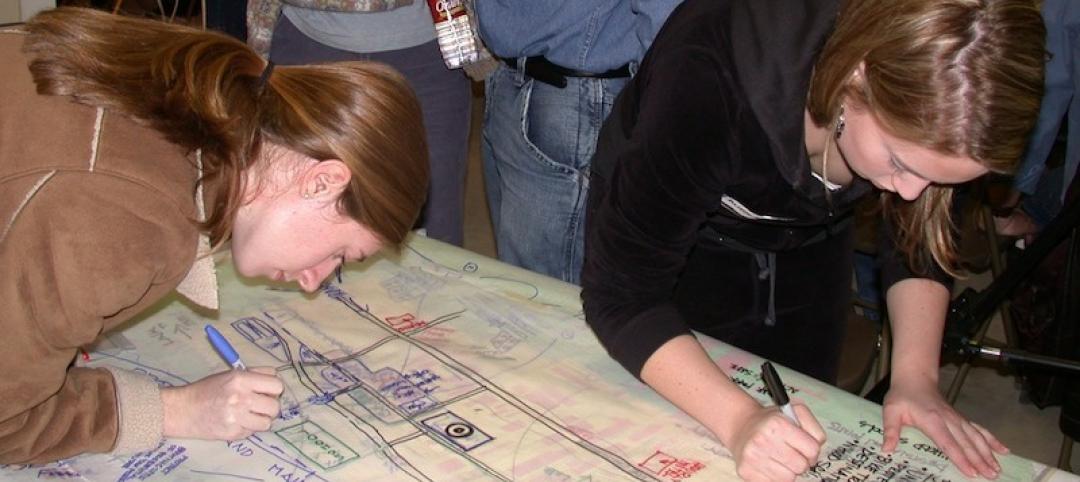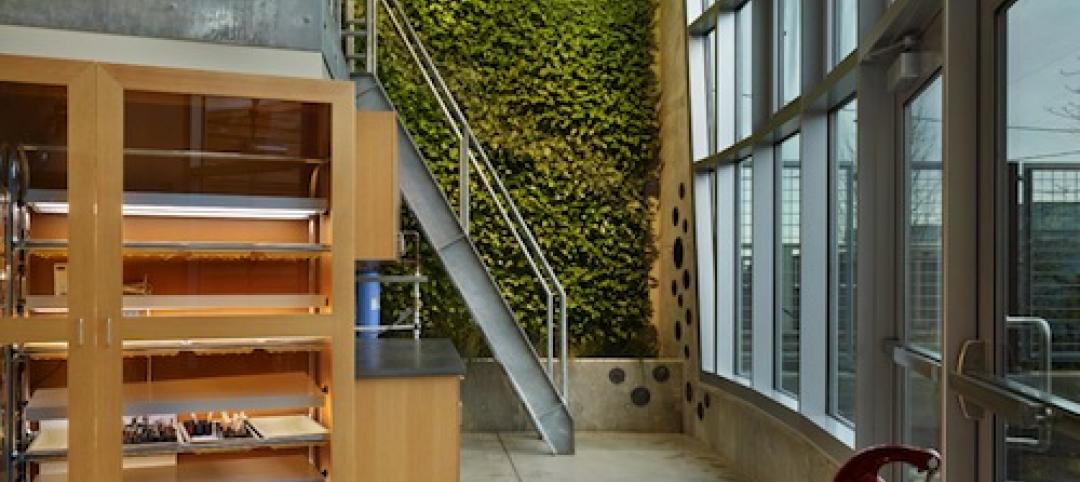Rafael Aranda, Carme Pigem and Ramon Vilalta have been selected as the 2017 Pritzker Architecture Prize Laureates, announced Tom Pritzker, Chairman of Hyatt Foundation, which sponsors the award that is known internationally as architecture’s highest honor.
The three architects, originating from Olot, in the Catalonian region of Spain, have worked together collaboratively since founding their firm RCR Arquitectes, in their hometown in 1988. Their work demonstrates an unyielding commitment to place and its narrative, to create spaces that are in discourse with their respective contexts. Harmonizing materiality with transparency, Aranda, Pigem and Vilalta seek connections between the exterior and interior, resulting in emotional and experiential architecture.
Mr. Pritzker says, “The jury has selected three architects who have been working collaboratively for nearly three decades. Mr. Aranda, Ms. Pigem and Mr. Vilalta have had an impact on the discipline far beyond their immediate area. Their works range from public and private spaces to cultural venues and educational institutions, and their ability to intensely relate the environment specific to each site is a testament to their process and deep integrity.”
Mr. Aranda, Ms. Pigem, and Mr. Vilalta represent the first time that three architects together are honored with the prize. Their intensely collaborative way of working together, where the creative process, commitment to vision and all responsibilities are shared equally, led to the selection of the three individuals for this year’s award. As the winners of the 39th edition of the Prize, it is the second time that laureates hail from Spain, following Rafael Moneo who received the award in 1996. In response to being named the 2017 Laureates of the Pritzker Prize, Ms. Pigem states: “It is a great joy and a great responsibility. We are thrilled that this year three professionals, who work closely together in everything we do, are recognized.”
The locally-based architects evoke universal identity through their creative and extensive use of modern materials including recycled steel and plastic. “They’ve demonstrated that unity of a material can lend such incredible strength and simplicity to a building,” says Glenn Murcutt, Jury Chair. “The collaboration of these three architects produces uncompromising architecture of a poetic level, representing timeless work that reflects great respect for the past, while projecting clarity that is of the present and the future.” As such, an early 20th century foundry has become their office, Barberí Laboratory (2007), and many remnants of the original building have remained, blended with highly contrasting, new elements, which were added only where essential.
Notable projects include La Cuisine Art Center (Nègrepelisse, France, 2014), Soulages Museum in collaboration with G. Trégouët (Rodez, France, 2014), La Lira Theater Public Open Space in collaboration with J. Puigcorbé (Ripoll, Girona, Spain, 2011), Les Cols restaurant marquee (Olot, Girona, Spain, 2011), El Petit Comte Kindergarten in collaboration with J. Puigcorbé (Besalú, Girona, Spain, 2010), Bell-Lloc Winery (Palamós, Girona, Spain, 2007), Sant Antoni - Joan Oliver Library, Senior Citizen’s Center and Cándida Pérez Gardens (Barcelona, Spain, 2007), and Tossol-Basil Athletics Track (Olot, Girona, Spain, 2000).
The 2017 Pritzker Prize Jury Citation says, in part, “we live in a globalized world where we must rely on international influences, trade, discussion, transactions, etc. But more and more people fear that because of this international influence…we will lose our local values, our local art, and our local customs…Rafael Aranda, Carme Pigem and Ramon Vilalta tell us that it may be possible to have both. They help us to see, in a most beautiful and poetic way, that the answer to the question is not ‘either/or’ and that we can, at least in architecture, aspire to have both; our roots firmly in place and our arms outstretched to the rest of the world.”
In 2013 Mr. Aranda, Ms. Pigem and Mr. Vilalta founded RCR BUNKA Foundation to support architecture, landscape, arts and culture throughout society. They have been consultant architects to the Natural Park of the Volcanic Zone of La Garrotxa since 1989. Much of their work may be seen throughout Catalonia, Spain and greater Europe. They remain based in Olot.
This year, the Pritzker Prize ceremony will take place at the State Guest House, Akasaka Palace in Tokyo, Japan, on May 20, 2017.
Related Stories
| Apr 19, 2013
Is LED lighting keeping its promises?
Lighting experts debate the benefits, drawbacks, and issues related to specifying LED fixtures.
| Apr 19, 2013
Must see: Shell of gutted church on stilts, 40 feet off the ground
Construction crews are going to extremes to save the ornate brick façade of the Provo (Utah) Tabernacle temple, which was ravaged by a fire in December 2010.
| Apr 18, 2013
Survey seeks info from managers of high-tech facilities
The International Institute for Sustainable Laboratories (I2SL), and Laney College in Oakland California, a National Science Foundation-funded Building Efficiency for a Sustainable Tomorrow (BEST) Center, are collaborating to identify education and training needs and strategies for high-tech facility operators.
| Apr 18, 2013
SOM, CASE team up to launch crowd-sourced apps library
SOM and CASE have formally launched AEC-APPS, the first crowd-sourced, web-based library for applications used by architects, engineers and construction professionals. This is a one-of-a-kind initiative in the AEC Industry and is a non-profit online community that allows digital tool users and toolmakers to share ideas, tips and resources.
| Apr 18, 2013
Calatrava projects encounter issues with water, structure, Guardian says
A dozen years after Calatrava built the spectacular Ysios winery in the rainy Alava region of northern Spain, the building's dramatic, undulating roof continues to let in the damp.
| Apr 17, 2013
Frank Lloyd Wright's Park Avenue showroom demolished
New York loses another architectural gem by Frank Lloyd Wright as new owner razes auto showroom.
| Apr 17, 2013
First look: Renzo Piano's glass-domed motion pictures museum
The Academy of Motion Picture Arts and Sciences last week released preliminary plans for its $300 million Academy of Motion Picture Arts and Sciences museum in Los Angeles, designed by Renzo Piano and local architect Zoltan Pali.
| Apr 16, 2013
5 projects that profited from insulated metal panels
From an orchid-shaped visitor center to California’s largest public works project, each of these projects benefited from IMP technology.
| Apr 16, 2013
AIA/NCARB survey shows rosier picture for emerging professionals
In 2010, the AIA/NCARB Internship and Career Survey of emerging professionals took a snapshot of young designers during a time ofintense economic contraction, when they were often the first to suffer. But in the two years since, emerging professionals have begun experiencing a rebound.
| Apr 15, 2013
Seattle school certified as world's fourth Living Building
Bertschi School, an independent elementary school in the Capitol Hill neighborhood of Seattle, Wash., is now home to the first Living Building on the West Coast and the world’s fourth fully-certified Living Building.


